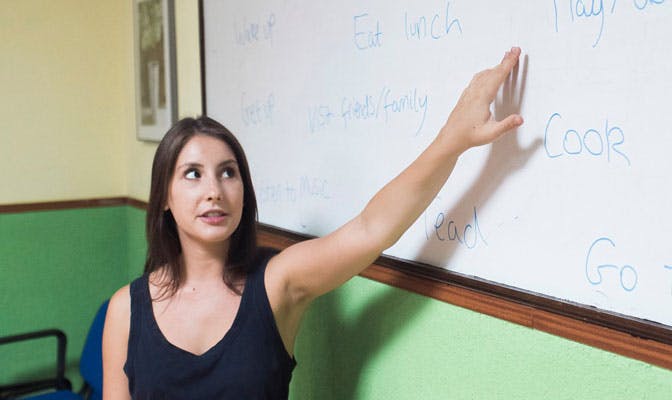
Everyone who volunteers abroad with IVHQ wants to make a difference and do some good. That goal is equal parts admirable and inspiring, and I’m constantly amazed by the passion and authentic drive that our volunteers have to make a positive contribution to a community. But it’s not easy. All communities are complicated and made up of a complex web of social and political circumstances that often make development work challenging. In order to be truly valuable, volunteers need to be aware of these circumstances and prepared to spend their time delivering a form of service that is well thought-out and clearly aligned to local needs.
Recently, I’ve been meeting with IVHQ staff members in Cambodia and Vietnam to discuss what it means to be a valuable and responsible volunteer, and what steps IVHQ volunteers could take to ensure that their time in these countries has the biggest impact possible. These are some of their tips:
1. Have an open mind about what you expect to achieve
It’s great to be optimistic about what you’ll be able to achieve in your time on a volunteering program. After all, you wouldn’t volunteer if you didn’t think you had something valuable to offer, right?
However, more often than not the contributions that volunteers make are incremental rather than grand and it’s highly unlikely that an individual volunteer will change the world, eradicate poverty or educate the masses. Instead IVHQ volunteers will make a contribution to meeting local needs in way that builds on the work of others and provides a vital next step in creating change.
Volunteers should be aware that what may seem like a very small task or a low profile role in a volunteering project could in fact be something that is hugely valuable to the community leaders who run our projects. Understanding this helps volunteers to set their expectations at a realistic level and ultimately leads to a more rewarding experience.

2. Be prepared to learn first
Volunteering abroad is a big commitment! It’s a commitment of time and also of energy, and many IVHQ volunteers have taken time out from demanding studies or jobs to make a difference in a foreign community. So it’s really important that none of this time is wasted and we see volunteers every day who are excited to get stuck in as quickly as they can. But it’s really important that volunteers know that they need to learn about the community they’re going to be working in before they can make a truly valuable contribution.
This means researching the community before leaving home, thinking about how your skills can best be utilized and, most importantly, listening and taking guidance from the people who run our projects. They know their community and its needs and they know how best to make use of you.
Many volunteers I speak to say that they learned more on their program than they ever thought they would, but it’s important to remember that this learning needs to start before you leave home.

3. Focus on building capacity
The responsible and valuable volunteer should be doing everything they can to work themselves out of a job. This means being conscious of how you are helping local people to develop the skills or capacity needed to do the work you are doing as a volunteer. If you want the impact you have to be lasting then being conscious about how you are empowering local people is essential.
This might mean providing the staff at an NGO with an understanding about how to write fantastic grant applications, or supporting a Childcare project to develop a basic curriculum that can be delivered by local staff, and it should also be done with the intention of avoiding any dependency on volunteers.
Be careful to take direction from members of the community about the skills or resources that need to be developed, but once these are identified focus your efforts on making sure the project can keep delivering to it’s goals long after you’re gone.
This is not a complete list by any stretch of the imagination and there are many other behaviours that define a responsible and valuable volunteer. No one knows these better than our local teams, so we’ll add to this as our team travels to visit our programs abroad.
To learn more about our approach to risk and responsibility, visit the Responsible Volunteering page.

